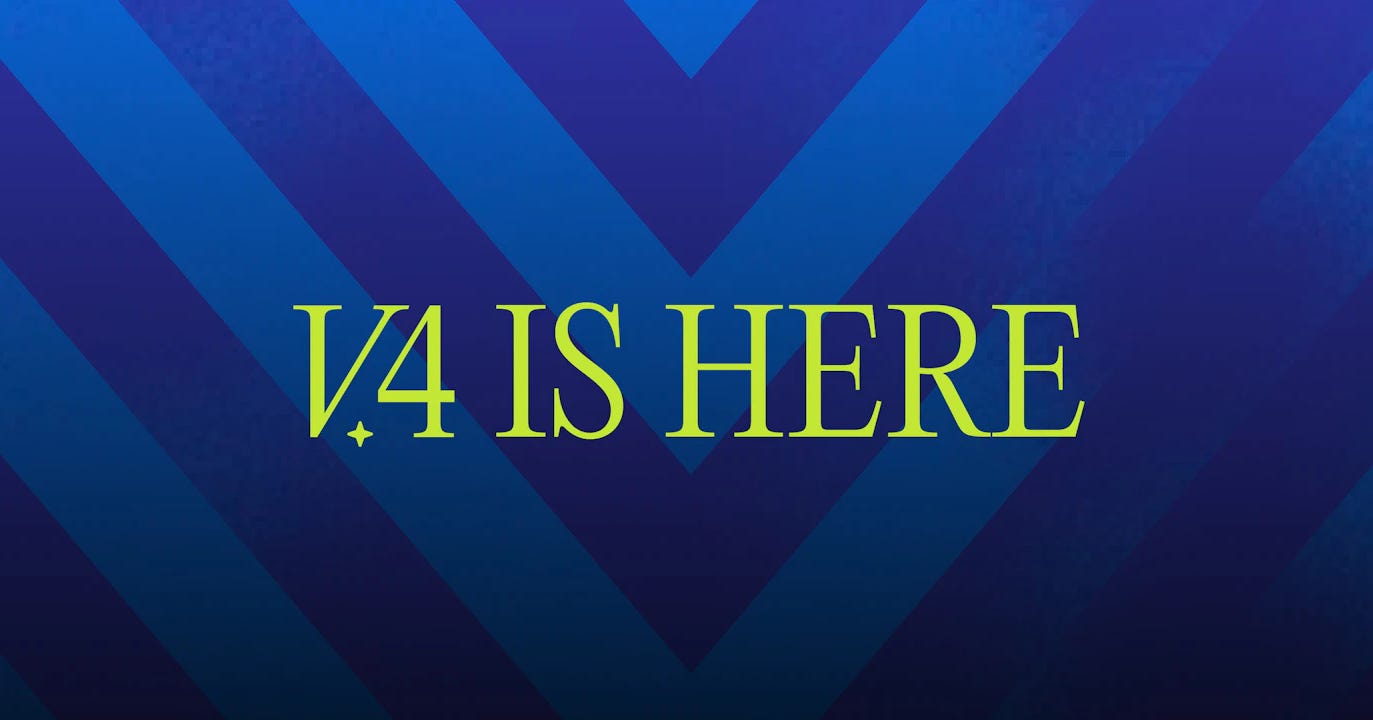Welcome to AI Policy Weekly, a newsletter from the Center for AI Policy. Each issue explores three important developments in AI, curated specifically for U.S. AI policy professionals.
Suno v4 Expands AI’s Musical Talents
A few days before Christmas 2023, the AI-powered music startup Suno AI emerged out of stealth.
Eleven months, $125 million fundraising dollars, and one Timbaland partnership later, Suno has released the latest version of its eponymous music generator, Suno v4.
“v4 delivers cleaner audio, sharper lyrics, and more dynamic song structures,” according to Suno.
The first point is especially important. Rolling Stone’s Brian Hiatt writes that “AI-generated music, whether from Suno or its most direct competitor, Udio, tends to have a certain tinniness—not unlike low-bitrate MP3s—that’s most evident in the vocals.”
Hiatt tested out the v4 system and found that its songs “are crisper than any previous Suno model could muster, with more realistic singers and instrumentation, plus a broader stereo field.”
Listen and see what you think. The following song came from about ten minutes of playing with Claude 3.5 Sonnet (for lyrics) and Suno v4. The musical style prompt was “neo-romantic rock [130bpm]: jangle-pop heartbeat x dream-pop shimmer x perpetual-forward flow + transcendent swells, pulsing wall of sound.”
Alternatively, peruse some of the Suno AI team’s favorite v4 songs, in genres like rap, EDM, and soul.
The final example caught the attention of UPenn professor Ethan Mollick, who commented that “if progress continues, the ability to figure out the AI frontier will slip from most of us.”
“I am not a good enough musician or critical listener to know if Suno v4 is actually as good as it sounds to me,” said Mollick. “I need to defer to experts (is it?)”
An expert responded: Ben Camp, Professor of Songwriting at Berklee College of Music, said “musically it’s better than 80% of my students, but my best students beat it by miles. [...] It's ready to eat service music.”
Along with v4’s general capability advancement, Suno also released a new “Remaster” feature that lets users upgrade their older songs to v4 quality.
Indeed, Suno offers a diverse range of features beyond basic textual prompting for songs:
Scenes is a tool for generating music in response to images and videos.
Audio Inputs let users “make a song from any sound,” for example by humming.
ReMi is an AI model that generates lyrics in response to prompts.
Covers “let you reimagine your songs by keeping the melody and adapting the track to a different style.”
Personas “capture the vocals, energy, and atmosphere of a track and allow you to store that signature ‘essence’” for steering future creations.
Text-to-image AI models automate cover art generation.
Basic editing tools are available for extending a song or re-generating a section of it.
AI music tools are only going to get better from here. Just this week, NVIDIA unveiled an AI model called “Fugatto” that can perform multiple types of audio generation and transformation tasks based on text instructions and audio inputs. NVIDIA calls it a “Swiss Army knife for sound.”
However, some tech giants are reluctant to get involved. For example, Business Insider reports that Google DeepMind and YouTube previously built an impressive AI music generator called “Orca” but had to scrap it due to legal concerns about copyright infringement.
Google’s caution is valid—major record labels are currently suing Suno for copyright infringement, seeking statutory damages of up to $150,000 per copyrighted recording that Suno used to train its AI.
Meanwhile, one of the plaintiffs, Universal Music Group (UMG), is striving to build its own commercial AI models for generating music. It recently entered a strategic partnership with an AI music startup called KLAY Vision.
Whether it’s Suno, UMG, or some other entity leading the charge, generative AI will continue to make waves in the music industry. To learn more about this consequential topic, check out the Center for AI Policy’s new research report on AI’s role in transforming music.

AI Safety Institutes Unite in America to Form Global Network
Last week, the U.S. AI Safety Institute (AISI) met near Silicon Valley with AISIs from around the world, as well as representatives from industry, academia, and civil society organizations, for the first-ever convening of the International AISI Network.
The U.S. is the inaugural chair of the Network. Other members include Australia, Canada, France, Japan, Kenya, South Korea, Singapore, the UK, and the European Union. That’s ten in total.
At the gathering, participants set priorities and planned future activities for the AISI Network. Key discussion topics included protecting against harmful synthetic content, coordinating foundation model evaluations, and building consensus on risk assessment approaches.
Several important actions were announced before and during the event:
The U.S. and UK AISIs published a lengthy report with their findings from safety testing Anthropic’s upgraded Claude 3.5 Sonnet model before public deployment.
The Network released a short mission statement. The AISIs collective efforts will initially focus on testing, guidance, safety-relevant research, and engagement with stakeholders outside the Network.
A mix of government and philanthropic entities contributed a total of $11 million to spur research into reducing risks from synthetic content. NIST also published a final draft of guidance on this topic.
The U.S., UK, and Singapore AISIs collaborated on a pilot project to test Meta’s Llama-3.1 405B on scientific benchmarks. They published a short report with their findings.
The Network issued a joint statement emphasizing six important qualities for conducting useful AI risk assessments.
Additionally, the U.S. AISI announced the formation of the Testing Risks of AI for National Security (TRAINS) Taskforce, which will bring together U.S. government leaders for “coordinated research and testing of advanced AI models across critical national security and public safety domains,” including cyber, nuclear, and biological security.
The Center for AI Policy calls on Congress to formally authorize the U.S. AISI so it can continue its critical work.

Protesting Artists Leak Access to OpenAI’s Video Generator
For three hours on Tuesday, OpenAI’s famous “Sora” video generation model was available for everyone.
OpenAI had been providing early access to ~300 artists, partly to identify ways to improve the tool before a broader release. OpenAI first unveiled the tool in February.
A few of those artists became upset with OpenAI and leaked access to the tool on Hugging Face. They also published criticisms of OpenAI in an open letter that has amassed over 900 signatories.
“Hundreds of artists provide unpaid labor through bug testing, feedback and experimental work for the program for a $150B valued company,” says the letter. “A select few will be chosen through a competition to have their Sora-created films screened—offering minimal compensation which pales in comparison to the substantial PR and marketing value OpenAI receives.”
The leak only included API access to Sora, so OpenAI was able to quickly shut it down. Had the leak included Sora’s model weights or other sensitive data, it would’ve been nearly impossible for OpenAI to fix. But it would not have been unprecedented—model weights have previously leaked from top AI companies like Meta and Mistral.
In the past two years, OpenAI has experienced at least two significant security breaches. First, a hacker stole information from OpenAI’s internal messaging systems about the company’s AI techniques. Second, crypto scammers breached multiple X accounts belonging to OpenAI’s company leadership and press team.
As AI models grow more valuable, hackers will have an even greater incentive to steal sensitive IP. Thus, AI companies urgently need to tighten their security practices to prevent further breaches.

News at CAIP
In an open letter organized by CAIP, twelve leading organizations urged Congressional leadership to pass responsible AI legislation before the end of the 118th Congress. Read the letter here.
Ep. 13 of the CAIP Podcast features Nick Whitaker, a fellow at the Manhattan Institute working on emerging tech and AI policy. Jakub and Nick discuss Nick’s AI Policy Playbook as well as progress studies, cybersecurity, export controls, AI companions, and more. Tune in here.
Kate Forscey discussed her takeaways from the conversation in a blog post: “A Playbook for AI: Discussing Principles for a Safe and Innovative Future”
Jason Green-Lowe wrote a blog post titled “CAIP Celebrates the International Network of AI Safety Institutes.”
Jason Green-Lowe spoke in a panel discussion on the AI policy landscape hosted by Enzai.
Recommended highlight: tune in at 10:20 for Jason’s comments on potential slowdowns in AI scaling.
Jason Green-Lowe attended The Curve, a conference that brought together attendees with opposing viewpoints to discuss AI policy, AI progress, and related topics.
Quote of the Week
Pets can help people overcome those feelings and become more resilient, but not everyone can own a pet, so Moflin is a good alternative.
—Erina Ichikawa, an employee at the Japanese electronics corporation Casio, describing benefits of a robot pet that the company is starting to sell

This edition was authored by Jakub Kraus.
If you have feedback to share, a story to suggest, or wish to share music recommendations, please drop me a note at jakub@aipolicy.us.
—Jakub





